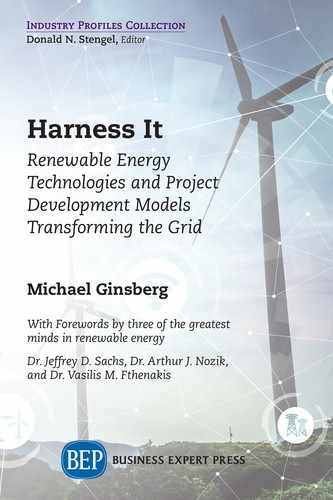Why Renewable Energy?
We live at a critical time. Historians will look back at the 21st century as one in which decisions were made to either protect the planet and our quality of life, or set us on an irreversible downward spiral.
The 20th century was a time of remarkable advancement. In the span of 100 years we learned how to acclimatize our homes, power vehicles and planes, extend our lives, and communicate across the world instantaneously. This century is about advancing those movements sustainably, “meet(ing) the needs of the present without compromising the ability of future generations to meet their own needs.”1
Electricity, despite its ubiquity, is an astoundingly new technology, and to make sustainable advancements we all need to understand how it works. Just because something is the way it is does not mean it must continue to be so in the future. Our electrical system is miraculous, but it is broken. It relies on burning old fossils that take millions of years to decompose. Why not use the sun and other abundant, practically endless resources? We can. Despite the myriad challenges and ‘institutional inertia, the feeling of let’s keep doing it this way because we always have,’ we are in the midst of the greatest transformation our electrical system has ever seen. We are all part of the evolution of the electrical grid.
Beyond the grid, the transportation sector will require a major shift. The exploration of hydrogen fuel cells and batteries in this book lays the foundation for the deep decarbonization of our society in every sector toward a truly emissions-free society.
Reference
- World Commission on Environment and Development. 1987. Our Common Future. Oxford: Oxford University Press.
